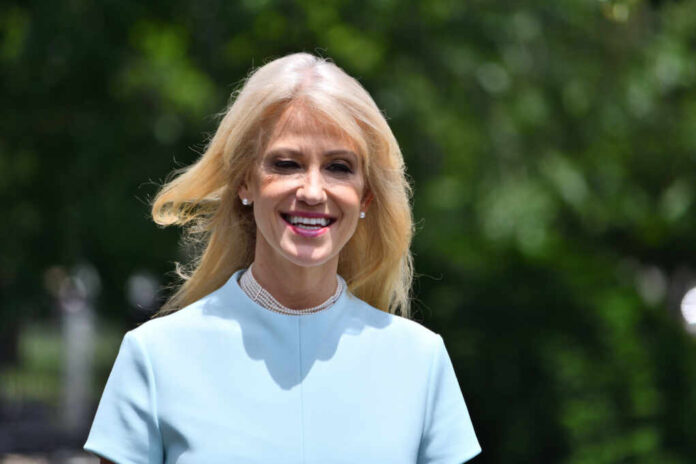
Kellyanne Conway, once a linchpin in Trump’s inner circle, has begun a disconcerting waltz with the Chinese Communist Party (CCP) through her lobbying efforts for TikTok, a platform increasingly viewed as a digital Trojan horse. Her actions, intertwined with the conservative Club for Growth’s sudden affinity for the app, underscore a precarious narrative threatening American values and security.
At the heart of this saga is the incongruous alignment of American political figures with the objectives of the CCP. TikTok, owned by ByteDance, which has ties to the CCP, has become a platform under scrutiny for its potential as a foreign intelligence apparatus masquerading as a benign social media application.
Despite this, Conway has positioned herself against a burgeoning bipartisan agreement on the need for a robust stance against the app, opting instead to promote mere “regulatory guardrails.” This is at a time when a unanimous vote from the House Committee on Energy and Commerce has sounded the alarm on the need for decisive action by enforcing a divestment from ByteDance.
Kellyanne Conway & The Club for Growth Are Doing The CCP's Bidding.
Read more:https://t.co/fISYfVmeKM
Former Trump aide Kellyanne Conway has begun lobbying for the continued operation of the Chinese …
— The National Pulse (@TheNatPulse) March 10, 2024
President Trump’s stance could be influenced by the Club for Growth’s connections to TikTok investor Jeff Yass. Alignment with the Club for Growth’s stance diverges sharply from his previous presidential attempts to safeguard national interests by ordering TikTok’s removal from U.S. app stores due to its Chinese connections.
The Club for Growth, having entrenched itself as a formidable conservative voice, paradoxically champions a platform that not only threatens national security but also propagates ideologies antithetical to American values. Given her previous stature as a defender of American sovereignty, Conway’s involvement in these lobbying efforts is perplexing. Her meetings with lawmakers to advocate for TikTok are a perplexing departure from her previously stated political convictions.
The bipartisan push against TikTok, led by figures such as Reps. Mike Gallagher (R-WI) and Raja Krishnamoorthi (D-IL) stands as a testament to the broader recognition of the threat posed by CCP-controlled platforms. Yet, the resistance spearheaded by Conway and the Club for Growth is a strong reminder of the convoluted allegiances within American politics, where financial interests increasingly blur the lines of national fidelity.
Moreover, the TikTok debacle extends beyond mere privacy concerns, touching on the very fabric of American democracy and the protection of its youth from foreign influence. Conway’s argument, framing the debate as a choice between regulation and an outright ban, misses the forest for the trees. It’s not merely about the technicalities of data privacy but the broader implications of allowing a CCP-influenced platform to mold the political and cultural landscapes of the United States.














